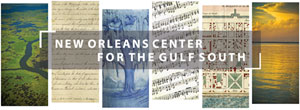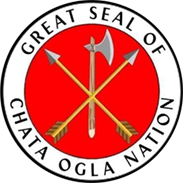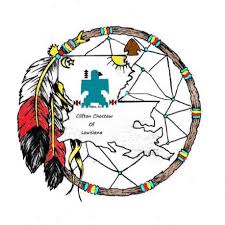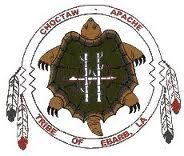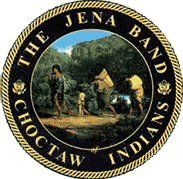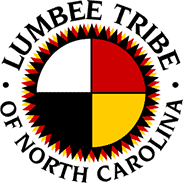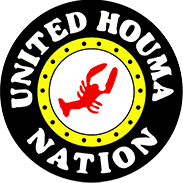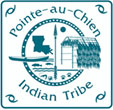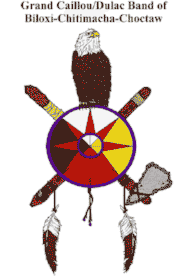Third Annual New Orleans Center for the Gulf South Indigenous Symposium
Virtual Meeting, Tulane University
March 12, 2021, 9:00 to 5:30 pm
Registration is free but attendees must register in order to access the webinar.
-
Being Native Today: Indigenous Identities in the Gulf South Register now for the virtual event. March 12, 2021, 9:00 to 5:30 pm
What makes someone Native American? How has Native identity changed over time? For many Indigenous peoples, their identities have always been self-evident, and are grounded in generations long relationships to lands, waters, and other Indigenous communities. This conference will seek to foster conversations about identities among Indigenous nations today. Speakers will discuss Tribal communities and identity during the colonial to the modern era and what factors have shaped the lives of the diverse Native nations of the Gulf South. In the seventeenth and eighteenth centuries, most people in North America understood Native people as part of sovereign, autonomous, Indigenous nations, and Native people did not primarily use racial ideologies to talk about their identities. However, the American Republic expanded in the early nineteenth century, and racist policies, promoting expansionist U.S. settler colonialism, increasingly impacted Indigenous people. Federal policy makers endeavored to convert these pre-existing, yet “foreign” Native nations into racial minorities within the American empire through concepts of blood quantum and scientific racism. In the nineteenth and twentieth centuries, federal policies both forcibly included and, simultaneously, systematically excluded Native people from participation within the nation. Over the last century, these regulations became ever more complicated as the Federal Government began to question and to arbitrarily decide on the criteria that qualified and determined Indian identity. This process evolved over time and was codified in 1978 with the formation of the Office of Federal Acknowledgment (OFA) within the Bureau of Indian Affairs (BIA) and accompanied by the creation of the Federal Recognition Process. This process demanded that Indian Nations meet seven distinct criteria in order to be federally recognized. This process quickly proved to be cumbersome and another burden by which Indians were forced to prove their own identity to an outside entity for approval and validation. For Native people who ground their identities in traditional concepts of kinship, US federal frameworks have created many challenges, and they have also led to the development of two, largely separate, conversations about Indigenous identities among Native and non-Indigenous people. In the wake of these exclusionary and discriminatory twentieth century policies, Tribal Nations also began to re-evaluate their criteria as to who belonged or did not in their nation. The centrality of race, blood, and biology in federal policy has also shaped how some Native people identify who belongs, and these inherent tensions have manifested in recent years in conflicts within Native communities. This conference aims to bridge these conversations and to highlight the less well-known perspectives of Indigenous scholars, artists, and community members on these issues. Through dialogues with different members of Tribal Nations, this symposium seeks to address these dynamic components of Indian identity and open a conversation about the variety of ways in which diverse Native peoples understand what it means to be Indigenous today.
Program Committee:
- Rebecca Snedeker, Executive Director New Orleans Center for the Gulf South
- Laura D. Kelley, Ph.D., Adj. Professor & Director Dublin Study Abroad, Tulane University
- Denise Frazier, Ph.D., Assistant Director New Orleans Center for the Gulf South
- John Barbry, Tunica-Biloxi Tribe of Louisiana
- Elizabeth N. Ellis, Ph.D., New York University, Citizen of Peoria Tribe of Indians of Oklahoma
- Judith Maxwell, Ph.D., Anthropology, Tulane University
- Chris Rodning, Ph.D., Anthropology Tulane University
- Maura Sullivan, Coastal Band of the Chumash Nation Ph.D. Student, Linguistics, Tulane University
-
Program Schedule Please note we are considering filming these sessions.
9:00 – 9:15
Welcome:
Rebecca Snedeker, Co-Chair, New Orleans Center for the Gulf South
Territorial Acknowledgement:
Principal Chief August “Cocoa” Creppel, United Houma Nation
Opening Remarks:
Dean Brian T. Edwards, Tulane School of Liberal Arts
9:15 – 10:15
Archaeology:
What’s Indian Enough?: Contemporary Indigenous Identity in the Carolinas
S. Margaret Spivey-Faulkner, University of Alberta, Pee Dee Indian Nation of Beaver Creek
10:15 – 11:15
History:
The Gulf Between Us: Relating Indigeneity in Louisiana and Mexico
Brian Klopotek, University of Oregon, Choctaw
11:15 – 12:30
Storytelling:
Stories and Interview
Laura D. Kelley with Grayhawk Perkins, Houma, Choctaw
12:30 – 1:25
Itta Homma:
A Conversation between Tonya Johnson and Jeffery Darensbourg
1:25 – 1:35
Break
1:35 – 2:35
Afternoon Opening Remarks and Keynote:
Afternoon Remarks
Rebecca Snedeker, Co-Chair, New Orleans Center for the Gulf South
Indians, Southerners, and Americans: Race, Tribe, and Nation During “Jim Crow”
Malinda Maynor Lowery, University of North Carolina at Chapel Hill, Lumbee Tribe of North Carolina
2:35 – 2:45
Break
2:45 – 4:00
Indigenous Voices:
Being Native Today
Moderator: Elizabeth N. Ellis, New York University, Citizen of Peoria Tribe of Indians of Oklahoma
Robert Caldwell, Choctaw-Apache Tribe of Ebarb
Dana Hauffe, Jena Band of Choctaw Indians
Becky Thomas Meziere, Clifton Choctaw Tribe of Louisiana
Waylon White Deer, Choctaw Nation (Oklahoma)4:00 – 5:00
Ongoing Projects:
Research and Engagement Opportunities
Looking Forward to Preserve the Past and to Nourish the Present
Chief Shirell Parfait-Dardar, Grand Caillou/Dulac Band Of Biloxi-Chitimacha-Choctaw, Planning for the Future While Protecting Our Past: Grand Caillou/Dulac Band Of Biloxi-Chitimacha-Choctaw
Nathalie Clarke, Tulane University & Pete LeBeouf, Pointe-au-Chien Indian Tribe, Metal in Where it (or We) Shouldn’t Be: Analyzing Heavy Metals in the Marshlands of Lower Terrebonne Paris
5:00
Closing Remarks and Performances:
Jeffery & Joseph Darensbourg, Atakapa-Ishak
Denise Frazier, New Orleans Center for the Gulf South -
Presenters & Symposium Organizers:
Organizers
-
Laura D. Kelley
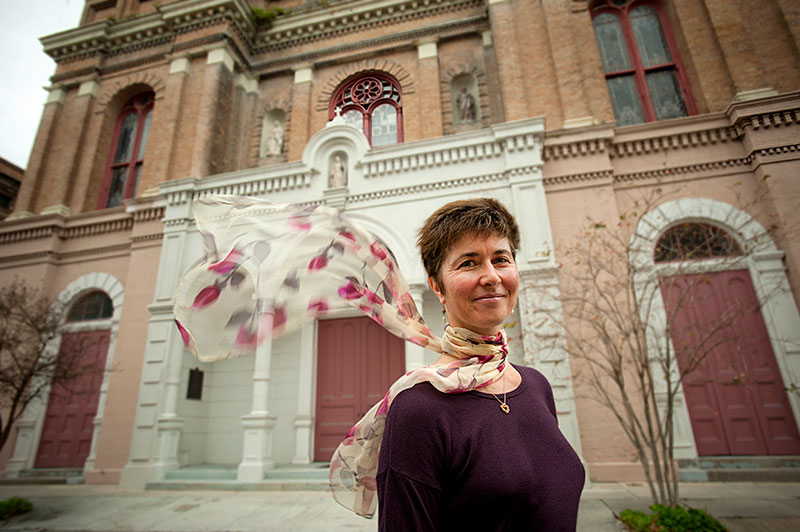 Laura D. Kelley is an immigrant and ethnic historian at Tulane University and the Program Director of Tulane’s Summer in Dublin Program. She is also the section editor for the Louisiana Endowment for the Humanities KNOWLA Project and has published articles in Louisiana History as well as online collections. Her book, The Irish in New Orleans, released in October 2014, was the winner of the bronze medal in the Regional Non-Fiction category of the Independent Publisher Awards- IPPY- as well as a finalist for the INDIEFAB award. She is the recipient of numerous grants which have supported her research examining immigrant and ethnic communities in New Orleans as well as Indigenous communities in Southern Louisiana. Dr. Kelley has been researching the history of Native American Tribes of Southern Louisiana as well as working directly with them on a variety of projects for over a decade. Her fifteen-year collaboration with the Pointe-au-Chien Indian Tribe, a community partner of Tulane University, has resulted in numerous projects with topics ranging from coastal erosion to foodways. She is currently completing her second manuscript on the Irish, “The Greening of New Orleans” as well as “We the People: Native Americans, Europeans, Anglo-Americans, and the Complex History of Southern Louisiana from Colonial Times to the Present.” For more information please visit www.lauradkelley.com.
Laura D. Kelley is an immigrant and ethnic historian at Tulane University and the Program Director of Tulane’s Summer in Dublin Program. She is also the section editor for the Louisiana Endowment for the Humanities KNOWLA Project and has published articles in Louisiana History as well as online collections. Her book, The Irish in New Orleans, released in October 2014, was the winner of the bronze medal in the Regional Non-Fiction category of the Independent Publisher Awards- IPPY- as well as a finalist for the INDIEFAB award. She is the recipient of numerous grants which have supported her research examining immigrant and ethnic communities in New Orleans as well as Indigenous communities in Southern Louisiana. Dr. Kelley has been researching the history of Native American Tribes of Southern Louisiana as well as working directly with them on a variety of projects for over a decade. Her fifteen-year collaboration with the Pointe-au-Chien Indian Tribe, a community partner of Tulane University, has resulted in numerous projects with topics ranging from coastal erosion to foodways. She is currently completing her second manuscript on the Irish, “The Greening of New Orleans” as well as “We the People: Native Americans, Europeans, Anglo-Americans, and the Complex History of Southern Louisiana from Colonial Times to the Present.” For more information please visit www.lauradkelley.com. -
Rebecca Snedeker
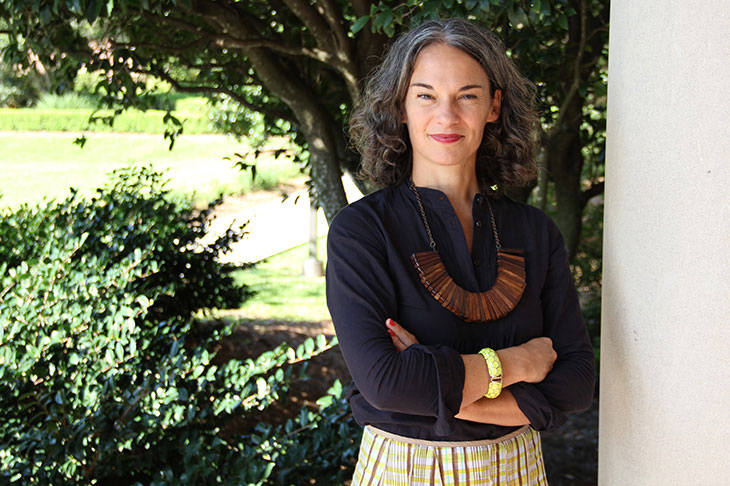 Rebecca Snedeker is the James H. Clark Executive Director of the New Orleans Center for the Gulf South at Tulane University. Prior to this position, she cultivated a body of narrative work that supports human rights, creative expression, and care for place in her native city, New Orleans. Works include Unfathomable City: A New Orleans Atlas (co-authored with Rebecca Solnit, University of California Press, 2013) and several feature documentary films, including Land of Opportunity (producer, ARTE, 2010), Witness: Katrina (producer, National Geographic Channel, 2010), and By Invitation Only (producer/director, PBS, 2007). Snedeker has served on the Steering Committee of New Day Films and the boards of the New Orleans Film Society and Patois: The New Orleans International Human Rights Film Festival. She graduated from Wesleyan University and is the recipient of an Emmy Award for “Historical Programming – Long Form” and grants from the National Endowment for the Arts and the National Endowment for the Humanities.
Rebecca Snedeker is the James H. Clark Executive Director of the New Orleans Center for the Gulf South at Tulane University. Prior to this position, she cultivated a body of narrative work that supports human rights, creative expression, and care for place in her native city, New Orleans. Works include Unfathomable City: A New Orleans Atlas (co-authored with Rebecca Solnit, University of California Press, 2013) and several feature documentary films, including Land of Opportunity (producer, ARTE, 2010), Witness: Katrina (producer, National Geographic Channel, 2010), and By Invitation Only (producer/director, PBS, 2007). Snedeker has served on the Steering Committee of New Day Films and the boards of the New Orleans Film Society and Patois: The New Orleans International Human Rights Film Festival. She graduated from Wesleyan University and is the recipient of an Emmy Award for “Historical Programming – Long Form” and grants from the National Endowment for the Arts and the National Endowment for the Humanities. -
Denise Frazier
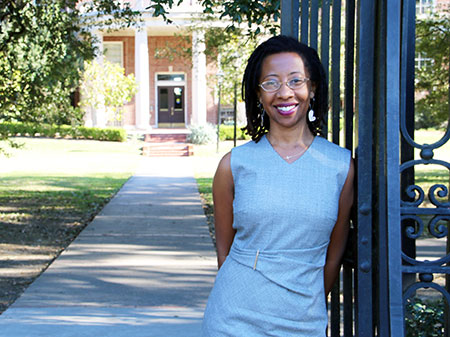 Denise Frazier: An interest in Cuban politics and African Diaspora culture within Latin America led her to New Orleans where she received an MA and PhD in Latin American Studies at Tulane University. Frazier’s graduate studies in Cuba and Brazil aligned with her interest in contemporary music, specifically hip hop, and public performance. Frazier frequently plays violin with performance organizations and musicians around the city. She has performed with several local New Orleans musicians and performances artists. Frazier has taught several university-level courses, including: Spanish, Latin American Studies, and African Diaspora-related courses on the university level at Tulane University, Xavier University, Wofford College, and Southern University of New Orleans. She has lectured and presented seminars and workshops on diversity, African Diaspora culture, contemporary music and performance all around the country. She has also worked with various advocacy groups and non-profit organizations in New Orleans, for instance a college access and completion program organization called: College Track and Make Music NOLA, a music and performance program for local New Orleans students. Frazier is currently the Assistant Director for the New Orleans Center for the Gulf South at Tulane University.
Denise Frazier: An interest in Cuban politics and African Diaspora culture within Latin America led her to New Orleans where she received an MA and PhD in Latin American Studies at Tulane University. Frazier’s graduate studies in Cuba and Brazil aligned with her interest in contemporary music, specifically hip hop, and public performance. Frazier frequently plays violin with performance organizations and musicians around the city. She has performed with several local New Orleans musicians and performances artists. Frazier has taught several university-level courses, including: Spanish, Latin American Studies, and African Diaspora-related courses on the university level at Tulane University, Xavier University, Wofford College, and Southern University of New Orleans. She has lectured and presented seminars and workshops on diversity, African Diaspora culture, contemporary music and performance all around the country. She has also worked with various advocacy groups and non-profit organizations in New Orleans, for instance a college access and completion program organization called: College Track and Make Music NOLA, a music and performance program for local New Orleans students. Frazier is currently the Assistant Director for the New Orleans Center for the Gulf South at Tulane University.
Presenters
-
Robert Caldwell
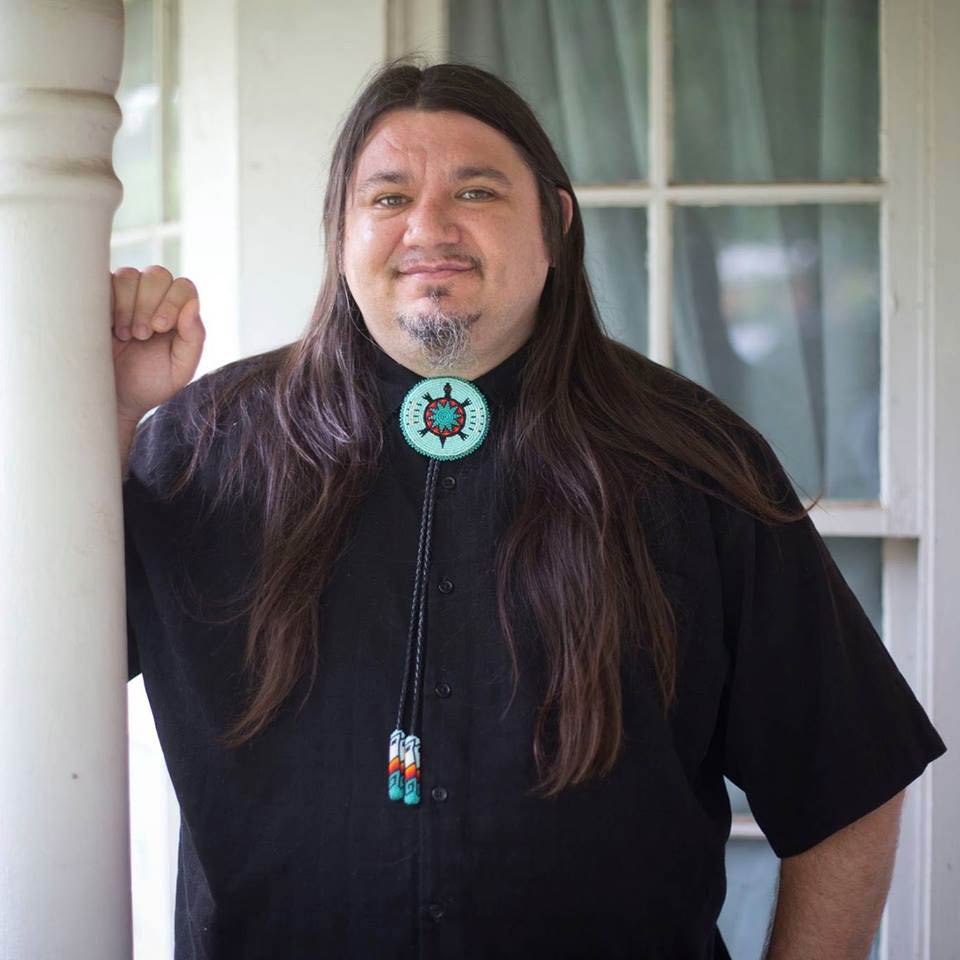 Robert Caldwell currently teaches U.S. History and Louisiana History at SOWELA Technical Community College. Prior to that he was a Library Digitization Specialist and Postdoctoral Research Fellow at the University of Texas at Arlington where he completed his doctorate in Transatlantic History in August 2018.His wide-ranging academic and research interests include Native American and Indigenous Studies, cartographic history, foodways, labor and migration, as well as Empires and Revolutions. Robert’s first book explores the culinary culture of the Choctaw-Apache Community of Ebarb. His 2018 dissertation, “Indians in their Proper Place: Culture Areas, Linguistic Stocks, and the Genealogy of a Map” explores 150 years of thematic maps of American Indian homelands, languages, and culture. The manuscript is now under contract with University of Nebraska Press.
Robert Caldwell currently teaches U.S. History and Louisiana History at SOWELA Technical Community College. Prior to that he was a Library Digitization Specialist and Postdoctoral Research Fellow at the University of Texas at Arlington where he completed his doctorate in Transatlantic History in August 2018.His wide-ranging academic and research interests include Native American and Indigenous Studies, cartographic history, foodways, labor and migration, as well as Empires and Revolutions. Robert’s first book explores the culinary culture of the Choctaw-Apache Community of Ebarb. His 2018 dissertation, “Indians in their Proper Place: Culture Areas, Linguistic Stocks, and the Genealogy of a Map” explores 150 years of thematic maps of American Indian homelands, languages, and culture. The manuscript is now under contract with University of Nebraska Press. -
Nathalie Clarke
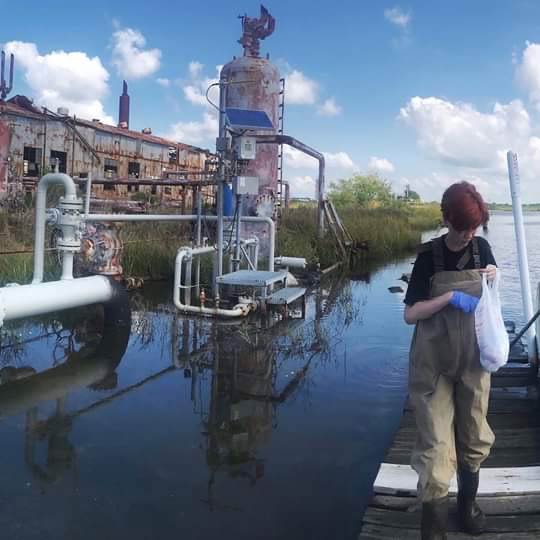 Nathalie Clarke was born in the United States, but from a young age, her home has been the Corbières, in Southern France, where her father, sister, and many nieces and nephews still live. Family ties and an opportunity to attend Tulane University brought her to Louisiana where she has studied Anthropology, Environmental Biology, and Chemistry. She has received grants, including the nationally competitive Goldwater Scholarship and Tulane’s International Research Experience for Students fellowship, to support her STEM related research. In 2017 she was awarded a research fellowship to continue her archival and translation work with the Pointe-au-Chien Indian Tribe as part of their Federal Recognition Project. After this fellowship ended, Ms Clarke collaborated with Pete LeBeouf, a tribal member and fellow scientist, to design an interdisciplinary community-based participatory research project examining heavy metal accumulation in areas surrounding abandoned wells. Ms Clarke is committed to the fight against imperialism, colonialism, capitalism, and all other systems that prioritize profit over people and over the planet. Ms Clarke fights these injustices through research, and collective organizing.
Nathalie Clarke was born in the United States, but from a young age, her home has been the Corbières, in Southern France, where her father, sister, and many nieces and nephews still live. Family ties and an opportunity to attend Tulane University brought her to Louisiana where she has studied Anthropology, Environmental Biology, and Chemistry. She has received grants, including the nationally competitive Goldwater Scholarship and Tulane’s International Research Experience for Students fellowship, to support her STEM related research. In 2017 she was awarded a research fellowship to continue her archival and translation work with the Pointe-au-Chien Indian Tribe as part of their Federal Recognition Project. After this fellowship ended, Ms Clarke collaborated with Pete LeBeouf, a tribal member and fellow scientist, to design an interdisciplinary community-based participatory research project examining heavy metal accumulation in areas surrounding abandoned wells. Ms Clarke is committed to the fight against imperialism, colonialism, capitalism, and all other systems that prioritize profit over people and over the planet. Ms Clarke fights these injustices through research, and collective organizing. -
Chief August “Cocoa” Creppel
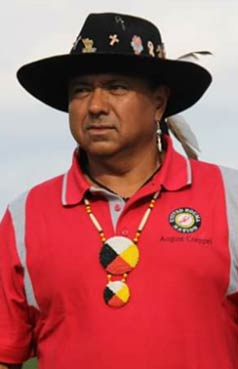
August Creppel, Chief of the United Houma Nation, has been involved in his tribal community for almost 30 years. Known as “Cocoa” among his people, he is the son of August and Barbara Creppel. Born and raised on the bayous of Lafitte, LA, he now resides in Houma, LA with his wife. Chief Creppel served as tribal councilman for District 8 (Jefferson Parish) for many years before becoming Vice-Chief for one year. In 2018, he became Chief of the tribe, and is currently in the 3rd year of his first term of office. Chief Creppel’s vision of unity for the tribe focuses on embracing, honoring, and providing assistance to the elders, while offering a better future of opportunity for the next generation of youth. With a passion and love for his people, Chief Creppel continues his hard efforts to utilize and explore all resources to benefit and move his tribe forward. In addition to his duties as Chief, he serves as a fireman and first responder, pastor and founder of Little Temple Native American Ministries, singer, actor, and former professional wrestler. -
Jeffrey Darensbourg
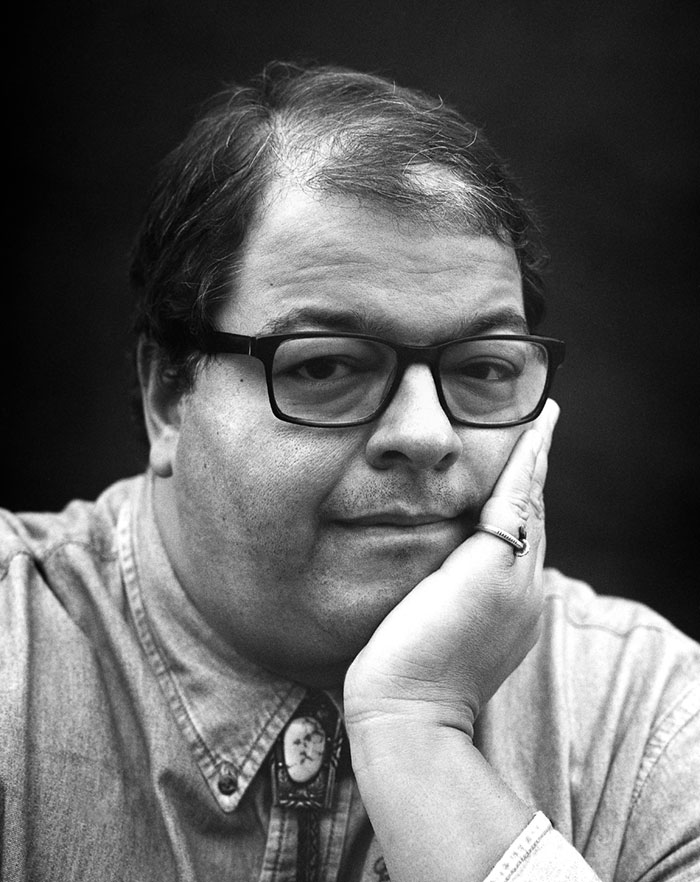 Jeffery Darensbourg is a writer, editor, and storyteller who is an enrolled member of the Atakapa-Ishak Nation of Indians of mixed Indigenous, European, and West African ancestry. He is a founding editor of the zine Bulbancha Is Still a Place: Indigenous Culture from New Orleans. Jeffery is a Fellow of the Center for Louisiana Studies at the University of Louisiana at Lafayette and a resident of the French Quarter. His 2020 film with Fernando López, Hoktiwe: Two Poems in Ishakkoy, is currently on display at the Contemporary Arts Center New Orleans.Photo credit: Benry Fauna
Jeffery Darensbourg is a writer, editor, and storyteller who is an enrolled member of the Atakapa-Ishak Nation of Indians of mixed Indigenous, European, and West African ancestry. He is a founding editor of the zine Bulbancha Is Still a Place: Indigenous Culture from New Orleans. Jeffery is a Fellow of the Center for Louisiana Studies at the University of Louisiana at Lafayette and a resident of the French Quarter. His 2020 film with Fernando López, Hoktiwe: Two Poems in Ishakkoy, is currently on display at the Contemporary Arts Center New Orleans.Photo credit: Benry Fauna -
Joseph Darensbourg
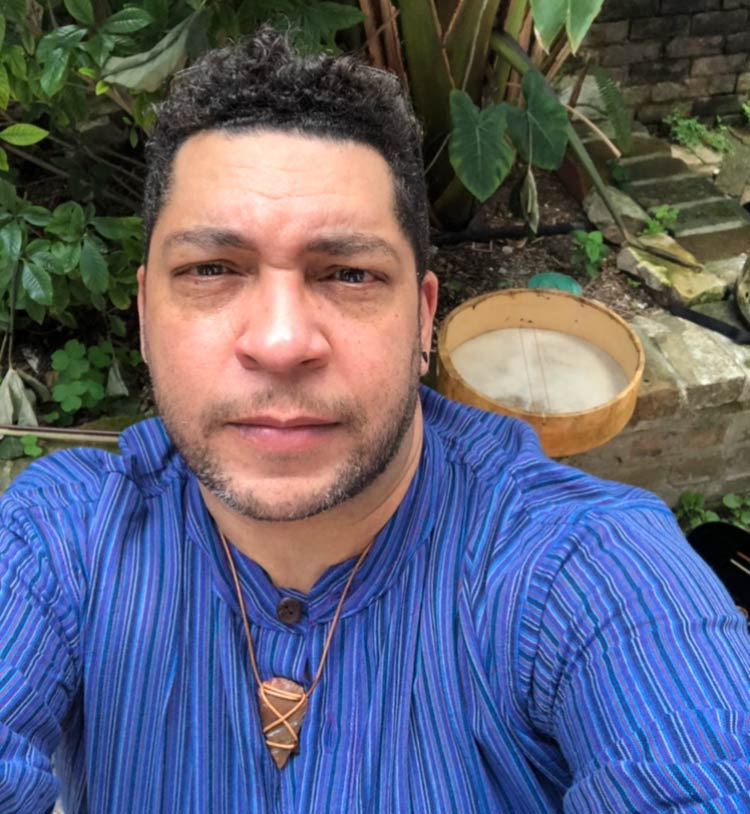 Joseph Darensbourg is a native of Bulbancha (Choctaw for “place of many tongues”, aka New Orleans) from the Faubourg Treme, the oldest free people of color neighborhood in the country (pre-dating the U.S. itself).
Joseph Darensbourg is a native of Bulbancha (Choctaw for “place of many tongues”, aka New Orleans) from the Faubourg Treme, the oldest free people of color neighborhood in the country (pre-dating the U.S. itself).
This neighborhood of Gens de Couler Libres is a tri-racial ethnic blend comprised of Native Americans, Europeans and African ethnic Creoles who speak a lingua franca known as Kouri Vini as well as colonial Louisiana French.
A performer of ethnic folks musics, Joseph is a singer, violinist and percussionist member of Les Cenelles (the hawthorn berries) ensemble which specializes in music inspired by resistance and protest poetry, Les Cenelles Gens de Couler Libres, civil rights activists opposing the Code Noir during the U.S. Reconstruction (1865-1877). Joseph focuses on The Bayou Ballads plantation songs (1840s-1880s).
A bookbinder by trade, trained at the oldest bookbindery in the U.S. (Harcourt, Boston), Joseph is also a visual art alum of NOCCA as well as a member of the oldest early music ensemble in the Americas, New Orleans Musica da Camera (founded in 1965, as was Joseph).
-
Dana Hauffe
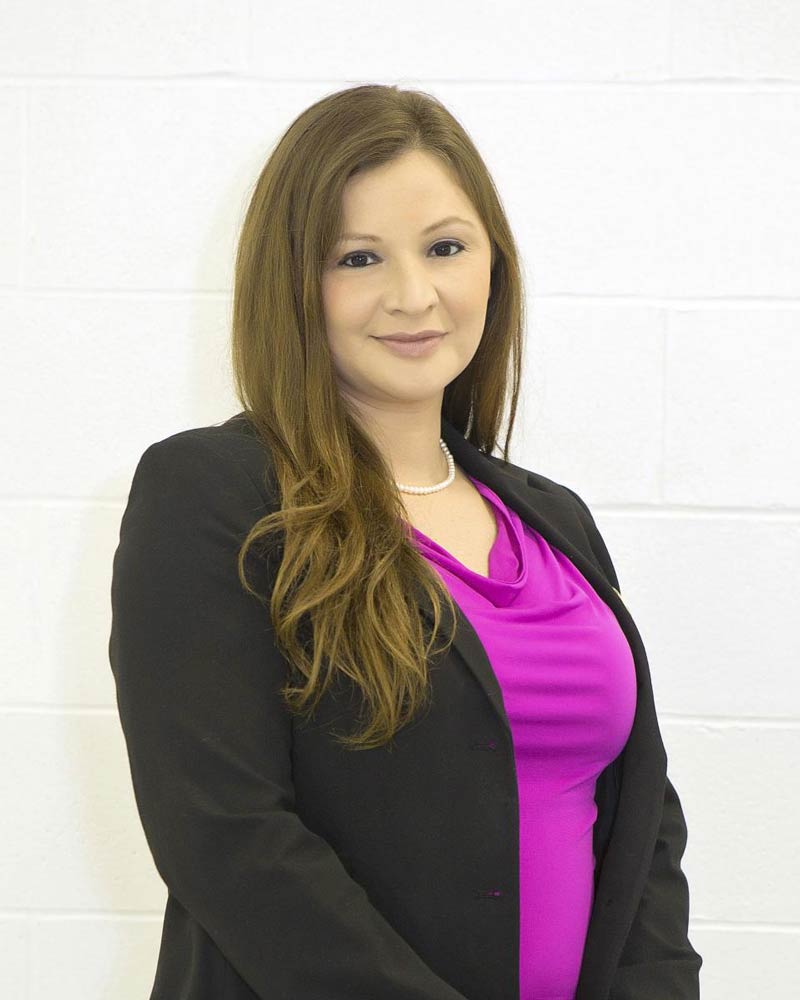 Dana Hauffe is a member of the federally recognized Tribal Nation of the Jena Band of Choctaw Indians located in central Louisiana. Mrs. Hauffe has previously served as a Tribal Council woman, Cultural Director, and Tribal Historic Preservation Officer for her tribe. While doing so, Mrs. Hauffe completed many community building projects and carried out numerous federal grant projects designed to aid in the preservation and conservation of the traditional cultural practices and language of the Jena Band. Mrs. Hauffe received her M.A. in 2019 from the University of Southern Mississippi, in the field of Anthropology and currently works as an archaeologist in Texas.
Dana Hauffe is a member of the federally recognized Tribal Nation of the Jena Band of Choctaw Indians located in central Louisiana. Mrs. Hauffe has previously served as a Tribal Council woman, Cultural Director, and Tribal Historic Preservation Officer for her tribe. While doing so, Mrs. Hauffe completed many community building projects and carried out numerous federal grant projects designed to aid in the preservation and conservation of the traditional cultural practices and language of the Jena Band. Mrs. Hauffe received her M.A. in 2019 from the University of Southern Mississippi, in the field of Anthropology and currently works as an archaeologist in Texas. -
Elizabeth N. Ellis
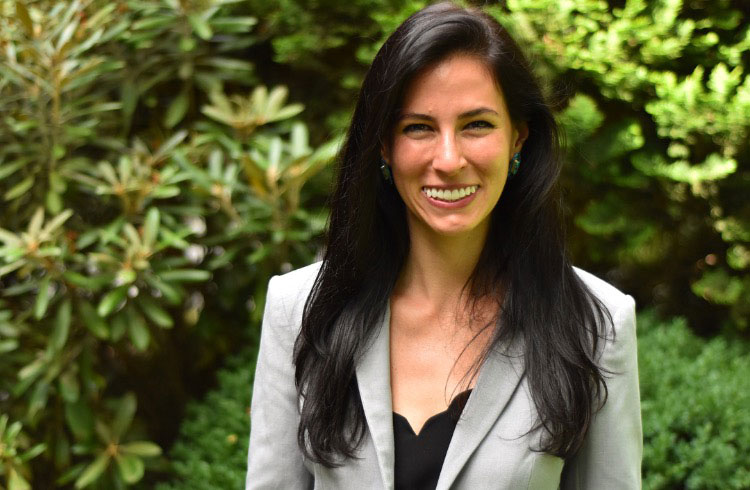 Elizabeth Ellis is an assistant professor of Native American and Early American history at New York University. She received her MA and PhD from the University of North Carolina at Chapel Hill and her BA from Tulane University. Prior to joining NYU Liz was the Barra postdoctoral fellow at the McNeil Center for Early American Studies and a visiting assistant professor at the University of Pennsylvania. Liz’s current book project investigates the histories of Louisiana’s small Native American polities, the “Petites Nations,” during the eighteenth century. Her work analyzes the ways these nations shaped European colonization efforts and influenced the lives of all of the inhabitants of the Lower Mississippi Valley.
Elizabeth Ellis is an assistant professor of Native American and Early American history at New York University. She received her MA and PhD from the University of North Carolina at Chapel Hill and her BA from Tulane University. Prior to joining NYU Liz was the Barra postdoctoral fellow at the McNeil Center for Early American Studies and a visiting assistant professor at the University of Pennsylvania. Liz’s current book project investigates the histories of Louisiana’s small Native American polities, the “Petites Nations,” during the eighteenth century. Her work analyzes the ways these nations shaped European colonization efforts and influenced the lives of all of the inhabitants of the Lower Mississippi Valley. -
S. Margaret Spivey-Faulkner
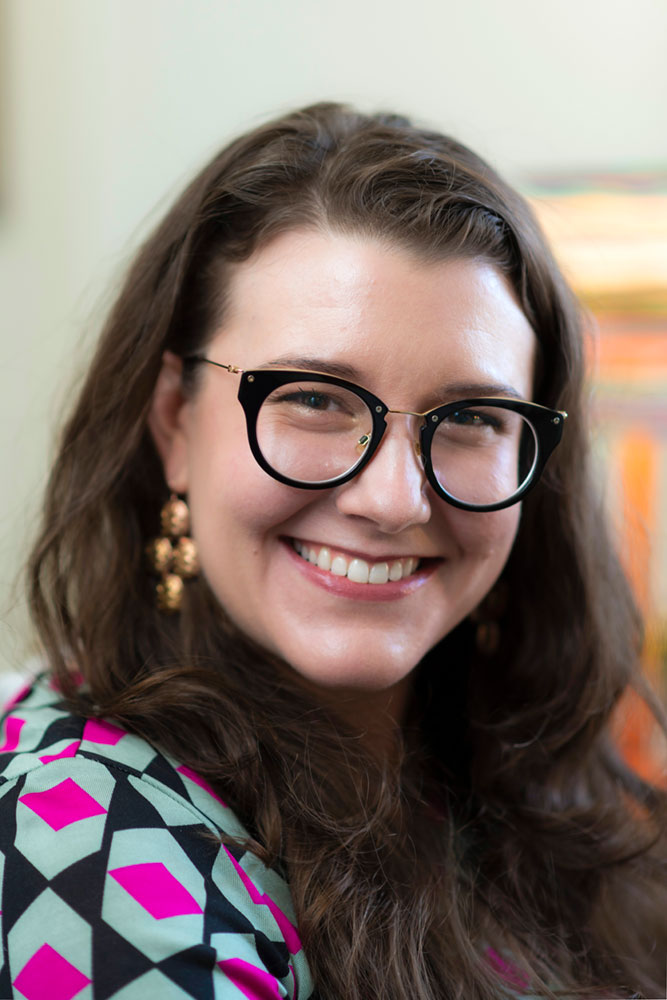 S. Margaret Spivey-Faulkner is an Assistant Professor in the Department of Anthropology at the University of Alberta and a citizen of the Pee Dee Indian Nation of Beaver Creek, a state-recognized Native American group in South Carolina. Her primary work focuses on people who subsisted through hunting, gathering, and fishing in the southeastern United States, looking specifically at examples of peoples who defy popular characterizations of “hunter-gatherer societal complexity.” She also works on a variety of secondary projects, including archaeological applications in United States Federal Indian Law and Native American philosophy. She is a former Junior Fellow at the Harvard Society of Fellows, received her Ph.D. in Anthropology from Washington University in St. Louis in 2018, and her A.B. in Anthropology from Harvard College in 2008.
S. Margaret Spivey-Faulkner is an Assistant Professor in the Department of Anthropology at the University of Alberta and a citizen of the Pee Dee Indian Nation of Beaver Creek, a state-recognized Native American group in South Carolina. Her primary work focuses on people who subsisted through hunting, gathering, and fishing in the southeastern United States, looking specifically at examples of peoples who defy popular characterizations of “hunter-gatherer societal complexity.” She also works on a variety of secondary projects, including archaeological applications in United States Federal Indian Law and Native American philosophy. She is a former Junior Fellow at the Harvard Society of Fellows, received her Ph.D. in Anthropology from Washington University in St. Louis in 2018, and her A.B. in Anthropology from Harvard College in 2008. -
Tonya Johnson
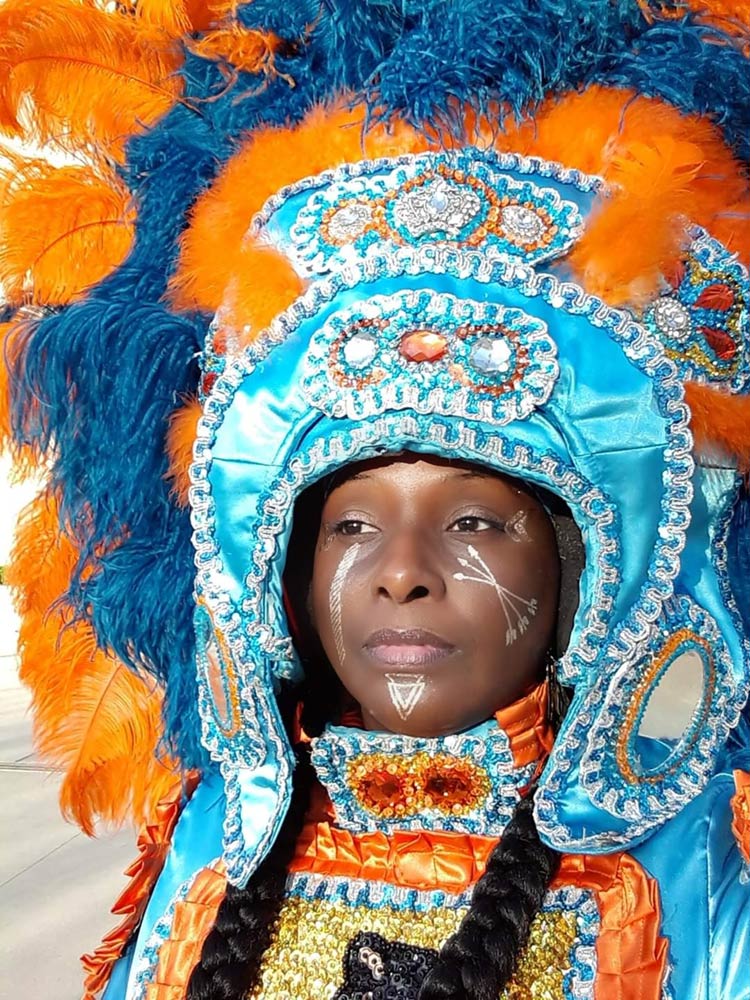 Tonya Bell is a Native of Baton Rouge, LA. Her family moved to Baton Rouge in the late 60’s, from Woodville & Crosby, MS. She has two beautiful children, Robert & Khatyjah. She recently moved from her hometown & currently resides in New Orleans with her husband Roderick, her kitten Koi & baby tortoise Bass Reeves. Her Native Ancestry is Mississippi Choctaw, which Tonya is very proud of. Tonya is currently masking with the Wild Tchoupitoulas Indians of New Orleans. She has been masking for six years in the role as a Big Queen. She is also a member of the Chata Ogla Nation of Louisiana. She is very passionate about her culture & takes pride in how much she loves it. Before covid struck, Tonya loved travelling to different Powwows throughout the state. In her spare time, when she is not beading and working on a new Indian suit, Tonya loves participating in community & local events. She welcomes the opportunities to put her feathers on and share her beautiful culture with everyone she meets.
Tonya Bell is a Native of Baton Rouge, LA. Her family moved to Baton Rouge in the late 60’s, from Woodville & Crosby, MS. She has two beautiful children, Robert & Khatyjah. She recently moved from her hometown & currently resides in New Orleans with her husband Roderick, her kitten Koi & baby tortoise Bass Reeves. Her Native Ancestry is Mississippi Choctaw, which Tonya is very proud of. Tonya is currently masking with the Wild Tchoupitoulas Indians of New Orleans. She has been masking for six years in the role as a Big Queen. She is also a member of the Chata Ogla Nation of Louisiana. She is very passionate about her culture & takes pride in how much she loves it. Before covid struck, Tonya loved travelling to different Powwows throughout the state. In her spare time, when she is not beading and working on a new Indian suit, Tonya loves participating in community & local events. She welcomes the opportunities to put her feathers on and share her beautiful culture with everyone she meets. -
Brian Klopotek
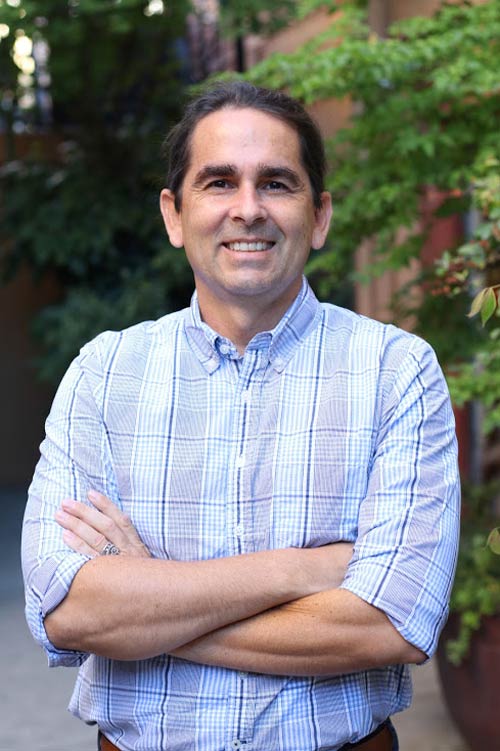 Brian Klopotek is an associate professor of Indigenous, Race, and Ethnic Studies at the University of Oregon and director of the Native American studies program there. His first book, Recognition Odysseys: Indigeneity, Race, and Federal Tribal Recognition Policy in Three Louisiana Indian Communities, was published by Duke University Press in 2011. Initially led to the topic by his own nonfederal Choctaw roots in Louisiana, Klopotek explores how tribes such as the Tunica-Biloxis, Jena Band of Choctaws, and Clifton-Choctaws, among others, have responded to and been affected by federal recognition policy, the politics of indigeneity, and racial thinking. With Brenda Child, he co-edited Indian Subjects: Hemispheric Perspectives on the History of Indigenous Education (SAR Press, 2014). With John Barbry, Elisabeth Pierite-Mora, and Donna Pierite, he co-edited The Tunica-Biloxi Tribe: Its Culture and People 2nd edition (Tunica-Biloxi Tribe, 2017). He is currently working on a book on relational Indigeneity and race in the US and Mexico derived in part from his work with the Choctaw-Apache tribe in Sabine Parish.
Brian Klopotek is an associate professor of Indigenous, Race, and Ethnic Studies at the University of Oregon and director of the Native American studies program there. His first book, Recognition Odysseys: Indigeneity, Race, and Federal Tribal Recognition Policy in Three Louisiana Indian Communities, was published by Duke University Press in 2011. Initially led to the topic by his own nonfederal Choctaw roots in Louisiana, Klopotek explores how tribes such as the Tunica-Biloxis, Jena Band of Choctaws, and Clifton-Choctaws, among others, have responded to and been affected by federal recognition policy, the politics of indigeneity, and racial thinking. With Brenda Child, he co-edited Indian Subjects: Hemispheric Perspectives on the History of Indigenous Education (SAR Press, 2014). With John Barbry, Elisabeth Pierite-Mora, and Donna Pierite, he co-edited The Tunica-Biloxi Tribe: Its Culture and People 2nd edition (Tunica-Biloxi Tribe, 2017). He is currently working on a book on relational Indigeneity and race in the US and Mexico derived in part from his work with the Choctaw-Apache tribe in Sabine Parish. -
Pete LeBeouf
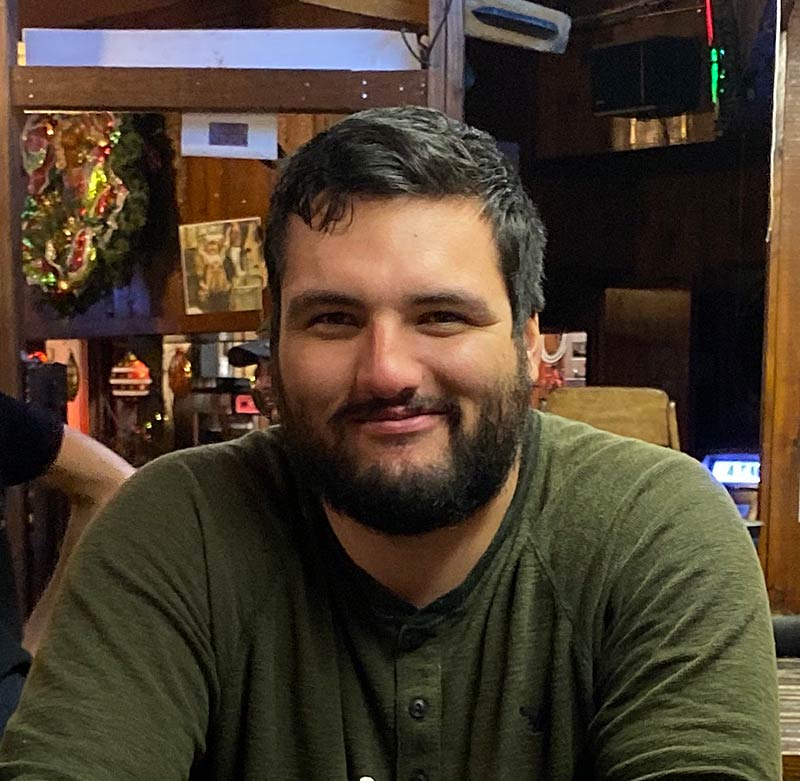 Pete LeBeouf is a member of the Pointe-au-Chien Indian Tribe located in South Louisiana. He is a recent graduate of Southeastern Louisiana University with a concentration in Environmental Biology, Ecology, and Evolution. He is an experienced field guide of the lower Mississippi River Delta and coastal waters of the Gulf South.
Pete LeBeouf is a member of the Pointe-au-Chien Indian Tribe located in South Louisiana. He is a recent graduate of Southeastern Louisiana University with a concentration in Environmental Biology, Ecology, and Evolution. He is an experienced field guide of the lower Mississippi River Delta and coastal waters of the Gulf South. -
Malinda Maynor Lowery
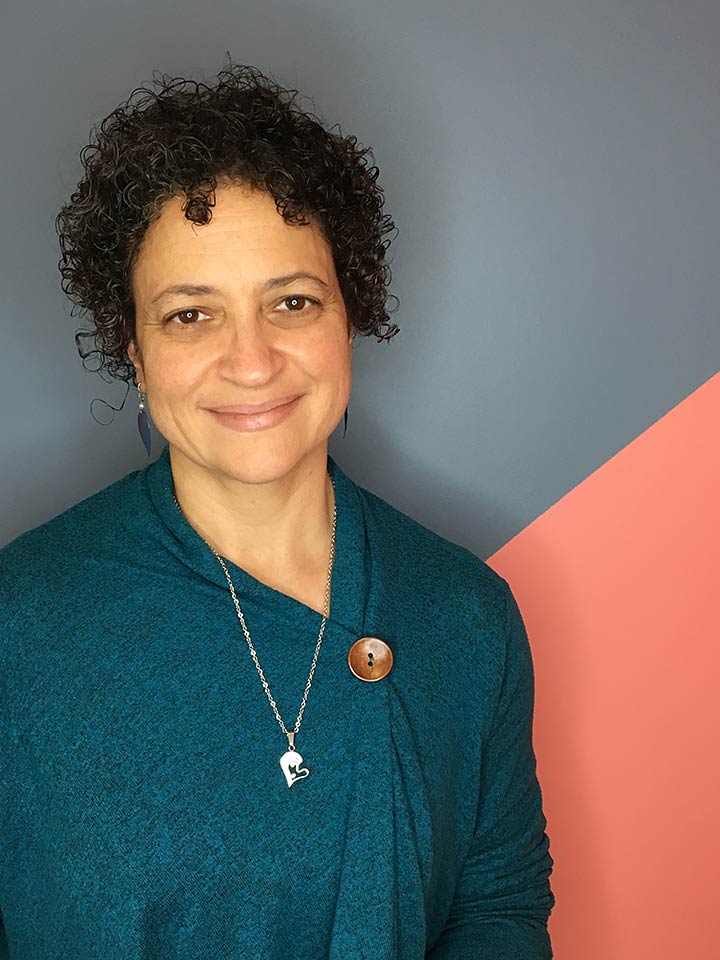 Malinda Maynor Lowery is a historian and documentary film producer who is a member of the Lumbee Tribe of North Carolina. She is a Professor of History at UNC-Chapel Hill and Director of the Center for the Study of the American South. Her second book, The Lumbee Indians: An American Struggle, was published by UNC Press in September 2018. The book is a survey of Lumbee history from the eighteenth century to the present, written for a general audience. Her first book, Lumbee Indians in the Jim Crow South: Race, Identity, and the Making of a Nation (UNC Press, 2010), won several awards, including Best First Book of 2010 in Native American and Indigenous Studies. She has written twenty book chapters or articles, on topics including American Indian migration and identity, school desegregation, federal recognition, religious music, and foodways, and has published essays in the New York Times, Oxford American, The North Star, The Conversation, Daily Yonder, and Scalawag Magazine. She has won fellowships and grants from the Mellon Foundation, the National Endowment for the Humanities, the Sundance Institute, the Ford Foundation, and others. Films she has produced include the Peabody Award-winning A Chef’s Life (currently airing on PBS), the Emmy-nominated Private Violence (broadcast on HBO in 2014), In the Light of Reverence (broadcast on PBS in 2001), and two short films, Real Indian (1996), and Sounds of Faith (1997), both of which premiered at the Sundance Film Festival
Malinda Maynor Lowery is a historian and documentary film producer who is a member of the Lumbee Tribe of North Carolina. She is a Professor of History at UNC-Chapel Hill and Director of the Center for the Study of the American South. Her second book, The Lumbee Indians: An American Struggle, was published by UNC Press in September 2018. The book is a survey of Lumbee history from the eighteenth century to the present, written for a general audience. Her first book, Lumbee Indians in the Jim Crow South: Race, Identity, and the Making of a Nation (UNC Press, 2010), won several awards, including Best First Book of 2010 in Native American and Indigenous Studies. She has written twenty book chapters or articles, on topics including American Indian migration and identity, school desegregation, federal recognition, religious music, and foodways, and has published essays in the New York Times, Oxford American, The North Star, The Conversation, Daily Yonder, and Scalawag Magazine. She has won fellowships and grants from the Mellon Foundation, the National Endowment for the Humanities, the Sundance Institute, the Ford Foundation, and others. Films she has produced include the Peabody Award-winning A Chef’s Life (currently airing on PBS), the Emmy-nominated Private Violence (broadcast on HBO in 2014), In the Light of Reverence (broadcast on PBS in 2001), and two short films, Real Indian (1996), and Sounds of Faith (1997), both of which premiered at the Sundance Film Festival -
Becky Thomas Meziere
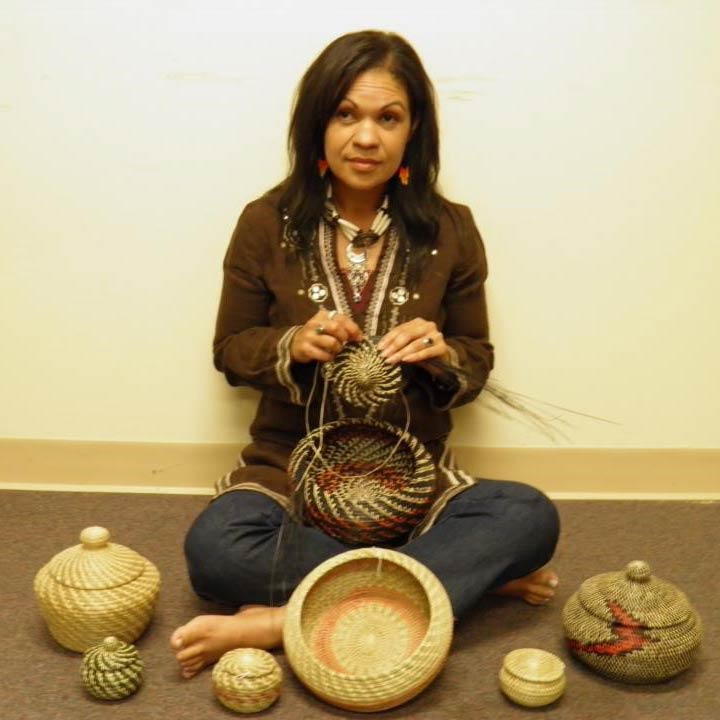 Becky is a member of the Clifton Choctaw Tribe in Louisiana and is a master, pine needle basket weaver. Becky learned how to weave baskets from her mother, Kathlene Thomas, when she was about ten years old. Her work can be viewed in museums in New Orleans, LA., and other places around the country and internationally. Becky also teaches classes in her spare time. Most of her father’s Choctaw family currently lives in Idabel, McCurtain, County Oklahoma. Becky has a bachelor’s degree in social work from Northwestern State University of Louisiana and will complete her Master’s degree with Stephen F. Austin, Texas, in May 2020.
Becky is a member of the Clifton Choctaw Tribe in Louisiana and is a master, pine needle basket weaver. Becky learned how to weave baskets from her mother, Kathlene Thomas, when she was about ten years old. Her work can be viewed in museums in New Orleans, LA., and other places around the country and internationally. Becky also teaches classes in her spare time. Most of her father’s Choctaw family currently lives in Idabel, McCurtain, County Oklahoma. Becky has a bachelor’s degree in social work from Northwestern State University of Louisiana and will complete her Master’s degree with Stephen F. Austin, Texas, in May 2020. -
Chief Shirell Parfait-Dardar
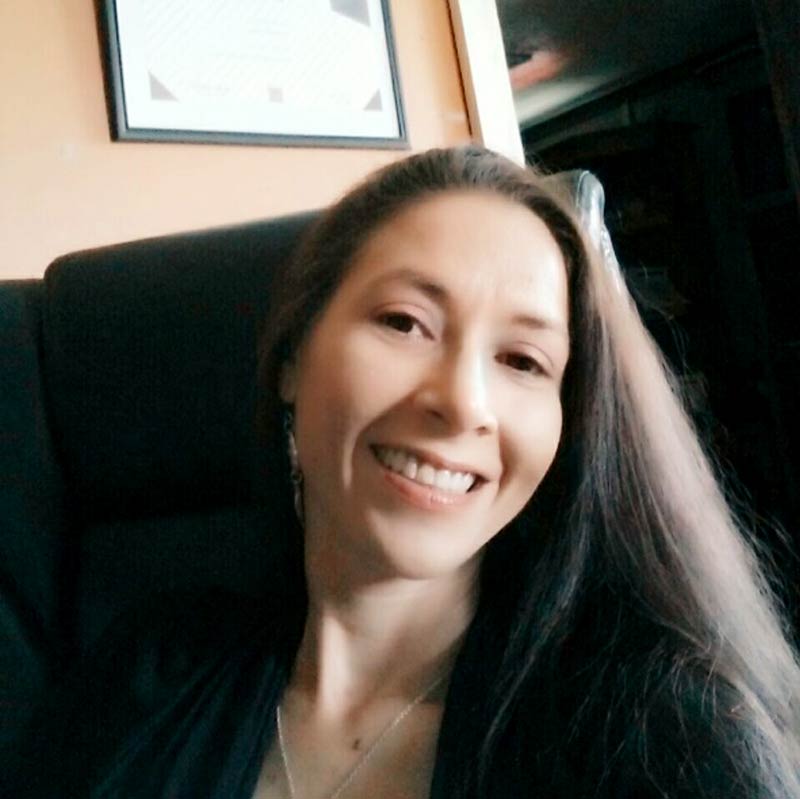 Shirell is a 39-year-old Mother of four wonderful children, ages 21 to 9. She is the wife of Isle de Jean Charles Tribal Citizen Dale Dardar, the Traditional Tribal Chief of the Grand Caillou/Dulac Band of Biloxi-Chitimacha-Choctaw, an Ordained Minister of the Universal Life Church, a Traditional Dressmaker and Clothing Designer/small business owner, becoming the first Native American business owner in the Historic Downtown District of Houma, LA. She is one of the founding members of the First People’s Conservation Council of Louisiana and is currently seated as the Secretary. She was also one of the advisors to LA H.B.660 – Act #102, establishing the Native American Commission and was elected the first Native American Chairwoman of the Louisiana Governor’s Office of Indian Affairs Native American Commission, and is a Musician in her spare time. Much of Shirell’s working hours are dedicated to Tribal Federal Acknowledgement efforts and serving her Tribal Citizens and the Community Residents within her Tribal Territory in Terrebonne Parish, Louisiana. She is an active advocate for coastal restoration and preservation, development and utilization of alternative energy sources, community resiliency, education and human rights. Her favorite quote is an ancient American Indian proverb: “Make mine enemy brave and strong, so that if defeated, I will not be ashamed.”
Shirell is a 39-year-old Mother of four wonderful children, ages 21 to 9. She is the wife of Isle de Jean Charles Tribal Citizen Dale Dardar, the Traditional Tribal Chief of the Grand Caillou/Dulac Band of Biloxi-Chitimacha-Choctaw, an Ordained Minister of the Universal Life Church, a Traditional Dressmaker and Clothing Designer/small business owner, becoming the first Native American business owner in the Historic Downtown District of Houma, LA. She is one of the founding members of the First People’s Conservation Council of Louisiana and is currently seated as the Secretary. She was also one of the advisors to LA H.B.660 – Act #102, establishing the Native American Commission and was elected the first Native American Chairwoman of the Louisiana Governor’s Office of Indian Affairs Native American Commission, and is a Musician in her spare time. Much of Shirell’s working hours are dedicated to Tribal Federal Acknowledgement efforts and serving her Tribal Citizens and the Community Residents within her Tribal Territory in Terrebonne Parish, Louisiana. She is an active advocate for coastal restoration and preservation, development and utilization of alternative energy sources, community resiliency, education and human rights. Her favorite quote is an ancient American Indian proverb: “Make mine enemy brave and strong, so that if defeated, I will not be ashamed.” -
Grayhawk Perkins
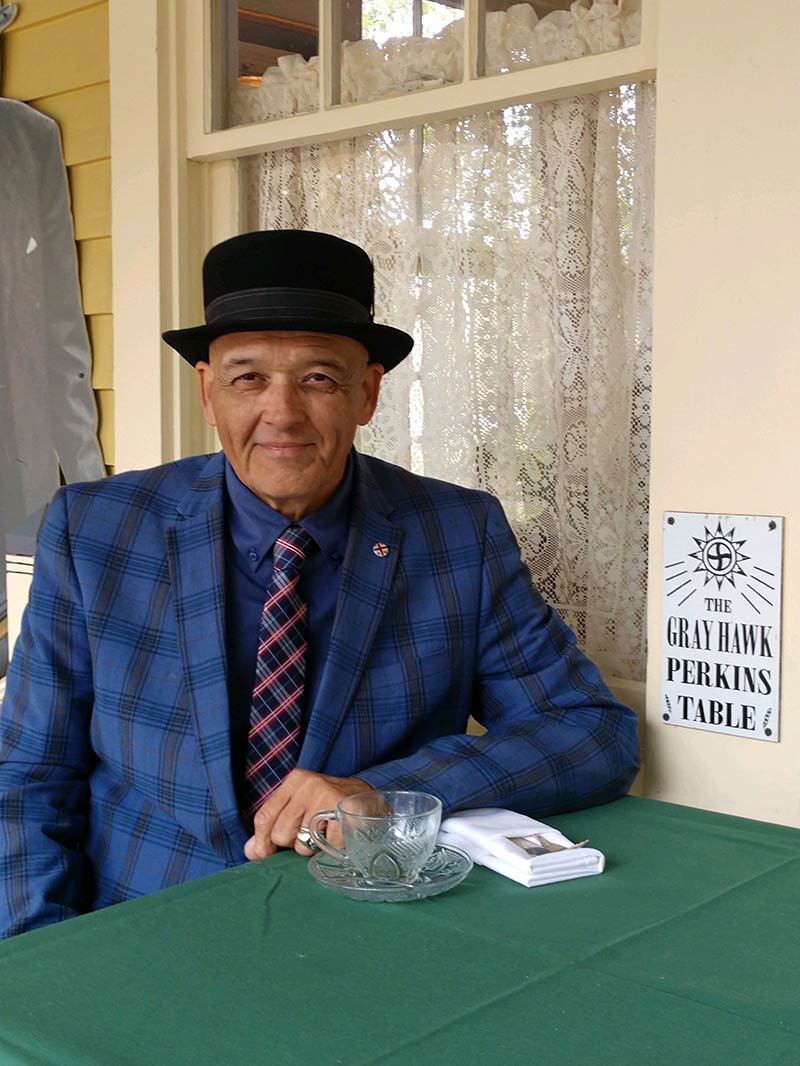 Grayhawk Perkins, a Native American of Choctaw and Houma descent, is a well-known cultural figure in Louisiana. In his career, he has worked professionally as an educator, historian, and a musician. As a musician, he has been involved with the New Orleans music industry for decades, having shared the stage with many notable acts such as Dr. John and Coco Robicheaux. He performs regularly at the New Orleans Jazz & Heritage Festival and the Voodoo Experience Music Festival, and has worked as a Jazz Fest Coordinator for over 25 years. As a recognized expert on Native American and American Colonial history, Perkins has inspired many audiences over the years sharing tales of ancient cultures as a ‘tribal storyteller’, and as a teacher of various subjects in Louisiana’s school system. He has taught music, history, writing, and environmental studies to students ranging in age from Pre-K to college level, and has been a solo performer for Young Audiences for over 20 years. Other credentials include his work as an Interpretive Ranger for the Louisiana Office of State Parks and designer of the Canne Brulee Natural History Museum in Kenner’s Rivertown District, under sponsorship of the City of Kenner. He has also worked in the film industry as an actor and has been called upon as a historical consultant to numerous films shot in the Southern United States. Perkins was honored by St. Tammany Parish President Kevin Davis as Cultural Artist of the Year for 2010 in the field of music and has most recently been featured across France touring, storytelling, lecturing, and playing music with the Mezcal Jazz Unit.
Grayhawk Perkins, a Native American of Choctaw and Houma descent, is a well-known cultural figure in Louisiana. In his career, he has worked professionally as an educator, historian, and a musician. As a musician, he has been involved with the New Orleans music industry for decades, having shared the stage with many notable acts such as Dr. John and Coco Robicheaux. He performs regularly at the New Orleans Jazz & Heritage Festival and the Voodoo Experience Music Festival, and has worked as a Jazz Fest Coordinator for over 25 years. As a recognized expert on Native American and American Colonial history, Perkins has inspired many audiences over the years sharing tales of ancient cultures as a ‘tribal storyteller’, and as a teacher of various subjects in Louisiana’s school system. He has taught music, history, writing, and environmental studies to students ranging in age from Pre-K to college level, and has been a solo performer for Young Audiences for over 20 years. Other credentials include his work as an Interpretive Ranger for the Louisiana Office of State Parks and designer of the Canne Brulee Natural History Museum in Kenner’s Rivertown District, under sponsorship of the City of Kenner. He has also worked in the film industry as an actor and has been called upon as a historical consultant to numerous films shot in the Southern United States. Perkins was honored by St. Tammany Parish President Kevin Davis as Cultural Artist of the Year for 2010 in the field of music and has most recently been featured across France touring, storytelling, lecturing, and playing music with the Mezcal Jazz Unit. -
Waylon White Deer
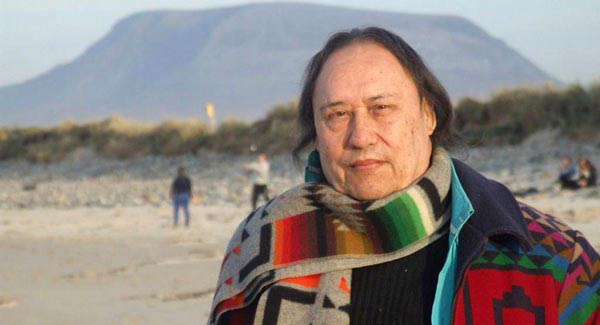 Waylon Gary White Deer is an Oklahoma Choctaw artist and author. His paintings hang in the Tunica-Biloxi Tribal Museum in Louisiana and in Donegal Castle, Ireland. He has also had solo painting exhibits at the Southern Plains Museum in Anadarko, Oklahoma, the Irish Cultural Center in New York City and the American Embassy in Dublin among other locales. Early artistic influences came from his father, who had painted with the Apache artist Allan Houser. As a teenager, he learned to make Choctaw ball sticks from Sidney White, of the Tuskahoma community. His first public art showings were at Indian City USA as part of an Indian village tour. Afterward, he traveled with the Kiowa artist Robert Redbird. He attended the Institute of American Indian Arts in Santa Fe, New Mexico and Carter Seminary in Ardmore, Oklahoma. A graduate of Haskell Indian Nations University, he has taught Choctaw Studies at Bacone College and was named a master artist for Choctaw chanting by the Oklahoma Arts Council. A former tribal cultural resources director, he has led tribal dances at the Atlanta Summer Olympics as well as in Memphis, Dallas, Dublin, Miami, Belfast and at the Gallup Inter-Tribal Ceremonials. His autobiography, Touched by Thunder, was published in Ireland by Currach Press and republished in America by Left Coast Press. He was officially received in Dublin by President Mary Robinson while representing the Irish-Choctaw Famine link. He was the subject of an Associated Press profile article that appeared in over 100 major newspapers worldwide. His seven children are Kiowa, Plains Apache and Comanche as well as Choctaw. He has eleven grandchildren. For more information please see https://waylongarywhitedeerart.com
Waylon Gary White Deer is an Oklahoma Choctaw artist and author. His paintings hang in the Tunica-Biloxi Tribal Museum in Louisiana and in Donegal Castle, Ireland. He has also had solo painting exhibits at the Southern Plains Museum in Anadarko, Oklahoma, the Irish Cultural Center in New York City and the American Embassy in Dublin among other locales. Early artistic influences came from his father, who had painted with the Apache artist Allan Houser. As a teenager, he learned to make Choctaw ball sticks from Sidney White, of the Tuskahoma community. His first public art showings were at Indian City USA as part of an Indian village tour. Afterward, he traveled with the Kiowa artist Robert Redbird. He attended the Institute of American Indian Arts in Santa Fe, New Mexico and Carter Seminary in Ardmore, Oklahoma. A graduate of Haskell Indian Nations University, he has taught Choctaw Studies at Bacone College and was named a master artist for Choctaw chanting by the Oklahoma Arts Council. A former tribal cultural resources director, he has led tribal dances at the Atlanta Summer Olympics as well as in Memphis, Dallas, Dublin, Miami, Belfast and at the Gallup Inter-Tribal Ceremonials. His autobiography, Touched by Thunder, was published in Ireland by Currach Press and republished in America by Left Coast Press. He was officially received in Dublin by President Mary Robinson while representing the Irish-Choctaw Famine link. He was the subject of an Associated Press profile article that appeared in over 100 major newspapers worldwide. His seven children are Kiowa, Plains Apache and Comanche as well as Choctaw. He has eleven grandchildren. For more information please see https://waylongarywhitedeerart.com
Program Committee
-
John D. Barbry
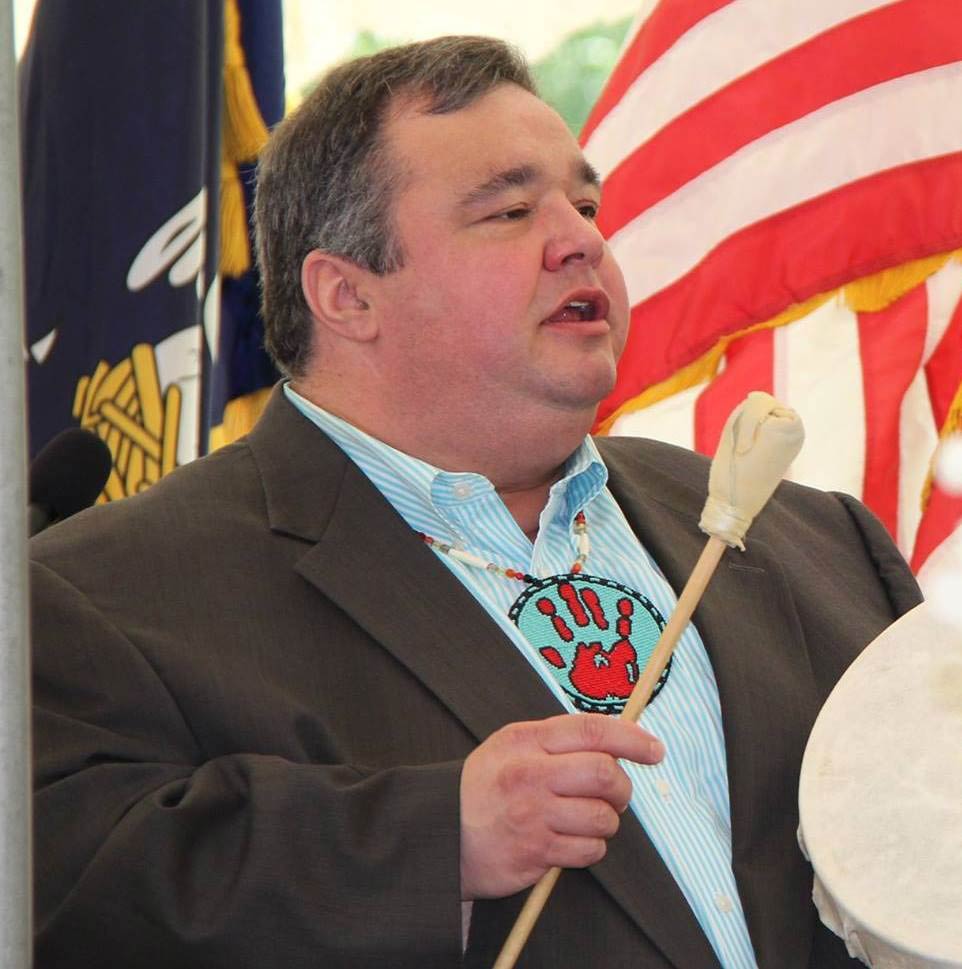 John Barbry has served as Director of Development and Programming for the Tunica-Biloxi Language & Culture Revitalization Program (LCRP) since 2014. LCRP is dedicated to enhancing the presence and vitality of the Tunica and Biloxi languages and cultural lifeways for tribal members and targeted non-member communities. Barbry oversees day-to-day administration of the LCRP including the development and implementation of education programs, cultural demonstrations, and workshops on Tunica and Biloxi history, languages and traditional lifeways. Since 2016, John has also served as project director for a U. S. Department of Education demonstration grant that provides Tunica-Biloxi youth with the resources needed to stay in school, be college and career-ready, and graduate.John Barbry holds a B. A. in Music Education from McNeese State University and an M.A. in History from the University of New Orleans. Barbry assisted with cataloging of the “Tunica Treasure” shortly after the collection was repatriated to the Tunica-Biloxi and prior to its return to the reservation from storage at the Louisiana State Museum in New Orleans. He then served as Research Supervisor in the manuscripts division at the Historic New Orleans Collection. Barbry was the first Native American appointed archivist at the Smithsonian Institution’s National Museum of the American Indian in 1993. Prior to his current responsibilities, Barbry worked 20 years in casino marketing and management in Louisiana and California. John has been chairman of the Tunica-Biloxi Pow Wow Committee since 1995.
John Barbry has served as Director of Development and Programming for the Tunica-Biloxi Language & Culture Revitalization Program (LCRP) since 2014. LCRP is dedicated to enhancing the presence and vitality of the Tunica and Biloxi languages and cultural lifeways for tribal members and targeted non-member communities. Barbry oversees day-to-day administration of the LCRP including the development and implementation of education programs, cultural demonstrations, and workshops on Tunica and Biloxi history, languages and traditional lifeways. Since 2016, John has also served as project director for a U. S. Department of Education demonstration grant that provides Tunica-Biloxi youth with the resources needed to stay in school, be college and career-ready, and graduate.John Barbry holds a B. A. in Music Education from McNeese State University and an M.A. in History from the University of New Orleans. Barbry assisted with cataloging of the “Tunica Treasure” shortly after the collection was repatriated to the Tunica-Biloxi and prior to its return to the reservation from storage at the Louisiana State Museum in New Orleans. He then served as Research Supervisor in the manuscripts division at the Historic New Orleans Collection. Barbry was the first Native American appointed archivist at the Smithsonian Institution’s National Museum of the American Indian in 1993. Prior to his current responsibilities, Barbry worked 20 years in casino marketing and management in Louisiana and California. John has been chairman of the Tunica-Biloxi Pow Wow Committee since 1995. -
Elizabeth N. Ellis
 Elizabeth Ellis is an assistant professor of Native American and Early American history at New York University. She received her MA and PhD from the University of North Carolina at Chapel Hill and her BA from Tulane University. Prior to joining NYU Liz was the Barra postdoctoral fellow at the McNeil Center for Early American Studies and a visiting assistant professor at the University of Pennsylvania. Liz’s current book project investigates the histories of Louisiana’s small Native American polities, the “Petites Nations,” during the eighteenth century. Her work analyzes the ways these nations shaped European colonization efforts and influenced the lives of all of the inhabitants of the Lower Mississippi Valley.
Elizabeth Ellis is an assistant professor of Native American and Early American history at New York University. She received her MA and PhD from the University of North Carolina at Chapel Hill and her BA from Tulane University. Prior to joining NYU Liz was the Barra postdoctoral fellow at the McNeil Center for Early American Studies and a visiting assistant professor at the University of Pennsylvania. Liz’s current book project investigates the histories of Louisiana’s small Native American polities, the “Petites Nations,” during the eighteenth century. Her work analyzes the ways these nations shaped European colonization efforts and influenced the lives of all of the inhabitants of the Lower Mississippi Valley. -
Denise Frazier
 Denise Frazier: An interest in Cuban politics and African Diaspora culture within Latin America led her to New Orleans where she received an MA and PhD in Latin American Studies at Tulane University. Frazier’s graduate studies in Cuba and Brazil aligned with her interest in contemporary music, specifically hip hop, and public performance. Frazier frequently plays violin with performance organizations and musicians around the city. She has performed with several local New Orleans musicians and performances artists. Frazier has taught several university-level courses, including: Spanish, Latin American Studies, and African Diaspora-related courses on the university level at Tulane University, Xavier University, Wofford College, and Southern University of New Orleans. She has lectured and presented seminars and workshops on diversity, African Diaspora culture, contemporary music and performance all around the country. She has also worked with various advocacy groups and non-profit organizations in New Orleans, for instance a college access and completion program organization called: College Track and Make Music NOLA, a music and performance program for local New Orleans students. Frazier is currently the Assistant Director for the New Orleans Center for the Gulf South at Tulane University.
Denise Frazier: An interest in Cuban politics and African Diaspora culture within Latin America led her to New Orleans where she received an MA and PhD in Latin American Studies at Tulane University. Frazier’s graduate studies in Cuba and Brazil aligned with her interest in contemporary music, specifically hip hop, and public performance. Frazier frequently plays violin with performance organizations and musicians around the city. She has performed with several local New Orleans musicians and performances artists. Frazier has taught several university-level courses, including: Spanish, Latin American Studies, and African Diaspora-related courses on the university level at Tulane University, Xavier University, Wofford College, and Southern University of New Orleans. She has lectured and presented seminars and workshops on diversity, African Diaspora culture, contemporary music and performance all around the country. She has also worked with various advocacy groups and non-profit organizations in New Orleans, for instance a college access and completion program organization called: College Track and Make Music NOLA, a music and performance program for local New Orleans students. Frazier is currently the Assistant Director for the New Orleans Center for the Gulf South at Tulane University. -
Laura D. Kelley
 Laura D. Kelley is an immigrant and ethnic historian at Tulane University and the Program Director of Tulane’s Summer in Dublin Program. She is also the section editor for the Louisiana Endowment for the Humanities KNOWLA Project and has published articles in Louisiana History as well as online collections. Her book, The Irish in New Orleans, released in October 2014, was the winner of the bronze medal in the Regional Non-Fiction category of the Independent Publisher Awards- IPPY- as well as a finalist for the INDIEFAB award. She is the recipient of numerous grants which have supported her research examining immigrant and ethnic communities in New Orleans as well as Indigenous communities in Southern Louisiana. Dr. Kelley has been researching the history of Native American Tribes of Southern Louisiana as well as working directly with them on a variety of projects for over a decade. Her fifteen-year collaboration with the Pointe-au-Chien Indian Tribe, a community partner of Tulane University, has resulted in numerous projects with topics ranging from coastal erosion to foodways. She is currently completing her second manuscript on the Irish, “The Greening of New Orleans” as well as “We the People: Native Americans, Europeans, Anglo-Americans, and the Complex History of Southern Louisiana from Colonial Times to the Present.” For more information please visit www.lauradkelley.com.
Laura D. Kelley is an immigrant and ethnic historian at Tulane University and the Program Director of Tulane’s Summer in Dublin Program. She is also the section editor for the Louisiana Endowment for the Humanities KNOWLA Project and has published articles in Louisiana History as well as online collections. Her book, The Irish in New Orleans, released in October 2014, was the winner of the bronze medal in the Regional Non-Fiction category of the Independent Publisher Awards- IPPY- as well as a finalist for the INDIEFAB award. She is the recipient of numerous grants which have supported her research examining immigrant and ethnic communities in New Orleans as well as Indigenous communities in Southern Louisiana. Dr. Kelley has been researching the history of Native American Tribes of Southern Louisiana as well as working directly with them on a variety of projects for over a decade. Her fifteen-year collaboration with the Pointe-au-Chien Indian Tribe, a community partner of Tulane University, has resulted in numerous projects with topics ranging from coastal erosion to foodways. She is currently completing her second manuscript on the Irish, “The Greening of New Orleans” as well as “We the People: Native Americans, Europeans, Anglo-Americans, and the Complex History of Southern Louisiana from Colonial Times to the Present.” For more information please visit www.lauradkelley.com. -
Judith Maxwell
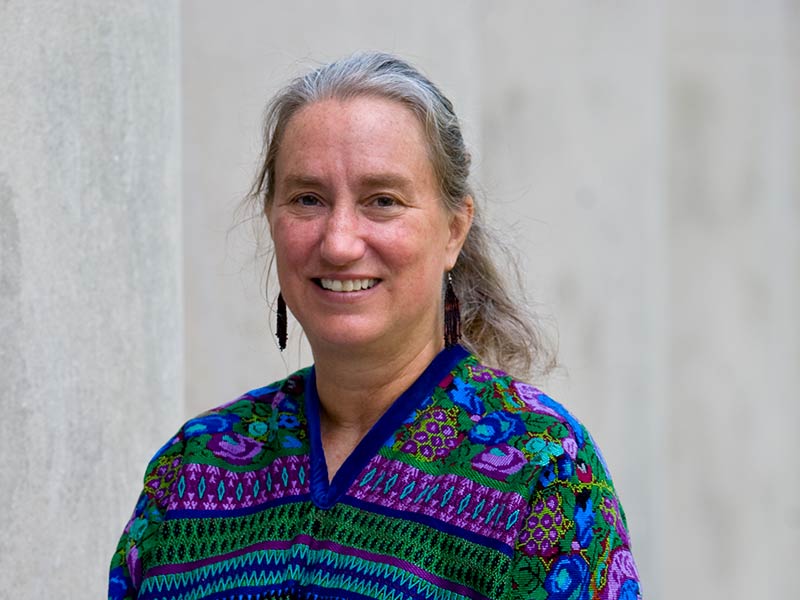 Judith Maxwell, Louise Rebecca Schawe and Williedell Schawe professor of linguistics and anthropology, works on discourse in Mayan, Uto-Aztecan languages and Tunica. Within discourse, she is interested in canons for artistry, encoding of cultural constructs (such as gender, power, ethnic identity), mechanisms of coherence, co-reference and tracking, knowledge and belief states, presuppositions, creating and indexing societal relationships, alignments, and animacy. She also works on standardization, language maintenance and shift, bilingual/multicultural education, and issues of language, gender, identity, and authenticity, as well as colonial and pre-contact writing. She co-directs a joint Tunica-Tulane Working Group striving to re-awaken the Tunica language which has been asleep for 60 years.
Judith Maxwell, Louise Rebecca Schawe and Williedell Schawe professor of linguistics and anthropology, works on discourse in Mayan, Uto-Aztecan languages and Tunica. Within discourse, she is interested in canons for artistry, encoding of cultural constructs (such as gender, power, ethnic identity), mechanisms of coherence, co-reference and tracking, knowledge and belief states, presuppositions, creating and indexing societal relationships, alignments, and animacy. She also works on standardization, language maintenance and shift, bilingual/multicultural education, and issues of language, gender, identity, and authenticity, as well as colonial and pre-contact writing. She co-directs a joint Tunica-Tulane Working Group striving to re-awaken the Tunica language which has been asleep for 60 years. -
Chris Rodning
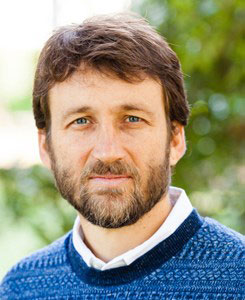 Chris Rodning is the Paul and Debra Gibbons Professor in the Department of Anthropology at Tulane University. He received an A.B. magna cum laude in anthropology from Harvard University in 1994, and a Ph.D. in anthropology from the University of North Carolina at Chapel Hill in 2004. He has published books and papers about the archaeology of the southern Appalachians and the Gulf South on topics such as the architecture and built environment of Native American towns, earthen mounds as monuments and persistent places within dynamic cultural landscapes, gender and status differentiation in Native American communities, and responses by native peoples of the Southeast to European contact and colonialism. His courses at Tulane include “Introduction to Archaeology,” “Ancient Societies,” “North American Prehistory,” “Southeast U.S. Prehistory,” “Archaeology of Cultural Landscapes,” “Disasters and Past Societies,” “Conquest and Colonialism,” and “Archaeology of Gender.”
Chris Rodning is the Paul and Debra Gibbons Professor in the Department of Anthropology at Tulane University. He received an A.B. magna cum laude in anthropology from Harvard University in 1994, and a Ph.D. in anthropology from the University of North Carolina at Chapel Hill in 2004. He has published books and papers about the archaeology of the southern Appalachians and the Gulf South on topics such as the architecture and built environment of Native American towns, earthen mounds as monuments and persistent places within dynamic cultural landscapes, gender and status differentiation in Native American communities, and responses by native peoples of the Southeast to European contact and colonialism. His courses at Tulane include “Introduction to Archaeology,” “Ancient Societies,” “North American Prehistory,” “Southeast U.S. Prehistory,” “Archaeology of Cultural Landscapes,” “Disasters and Past Societies,” “Conquest and Colonialism,” and “Archaeology of Gender.” -
Rebecca Snedeker
 Rebecca Snedeker is the James H. Clark Executive Director of the New Orleans Center for the Gulf South at Tulane University. Prior to this position, she cultivated a body of narrative work that supports human rights, creative expression, and care for place in her native city, New Orleans. Works include Unfathomable City: A New Orleans Atlas (co-authored with Rebecca Solnit, University of California Press, 2013) and several feature documentary films, including Land of Opportunity (producer, ARTE, 2010), Witness: Katrina (producer, National Geographic Channel, 2010), and By Invitation Only (producer/director, PBS, 2007). Snedeker has served on the Steering Committee of New Day Films and the boards of the New Orleans Film Society and Patois: The New Orleans International Human Rights Film Festival. She graduated from Wesleyan University and is the recipient of an Emmy Award for “Historical Programming – Long Form” and grants from the National Endowment for the Arts and the National Endowment for the Humanities.
Rebecca Snedeker is the James H. Clark Executive Director of the New Orleans Center for the Gulf South at Tulane University. Prior to this position, she cultivated a body of narrative work that supports human rights, creative expression, and care for place in her native city, New Orleans. Works include Unfathomable City: A New Orleans Atlas (co-authored with Rebecca Solnit, University of California Press, 2013) and several feature documentary films, including Land of Opportunity (producer, ARTE, 2010), Witness: Katrina (producer, National Geographic Channel, 2010), and By Invitation Only (producer/director, PBS, 2007). Snedeker has served on the Steering Committee of New Day Films and the boards of the New Orleans Film Society and Patois: The New Orleans International Human Rights Film Festival. She graduated from Wesleyan University and is the recipient of an Emmy Award for “Historical Programming – Long Form” and grants from the National Endowment for the Arts and the National Endowment for the Humanities. -
Maura Sullivan
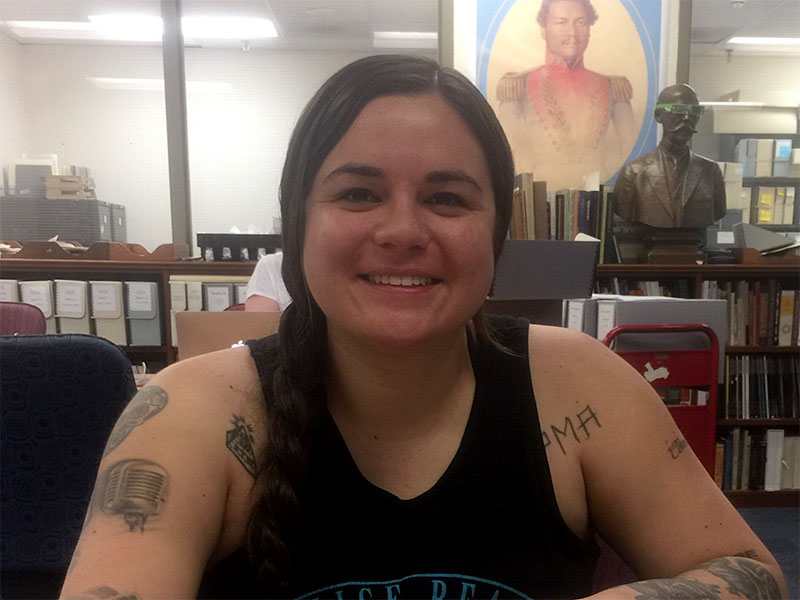 Maura Sullivan is from the Coastal Band of the Chumash Nation. She is currently a PhD student in Linguistics at Tulane University. She is a 2018 Mellon Fellow in Community Engaged Scholarship focusing especially on her own community and the creation of books and capturing oral history narratives of tribal members. She has experience working with tribal archives at the Smithsonian.
Maura Sullivan is from the Coastal Band of the Chumash Nation. She is currently a PhD student in Linguistics at Tulane University. She is a 2018 Mellon Fellow in Community Engaged Scholarship focusing especially on her own community and the creation of books and capturing oral history narratives of tribal members. She has experience working with tribal archives at the Smithsonian.
-
-
Contact
New Orleans Center for the Gulf South Tulane University Newcomb Hall Room 112 1229 Broadway St. New Orleans, LA 70119 504-314-2889 https://liberalarts.tulane.edu/programs/nocgs
-
Social Media:
Facebook: Nola Gulf South Facebook: Music Rising at Tulane Twitter: @NOCGS Instagram: Nola Gulf South Tumblr: New Orleans Center for the Gulf South
Image Credit: Dr. Laura Kelley

